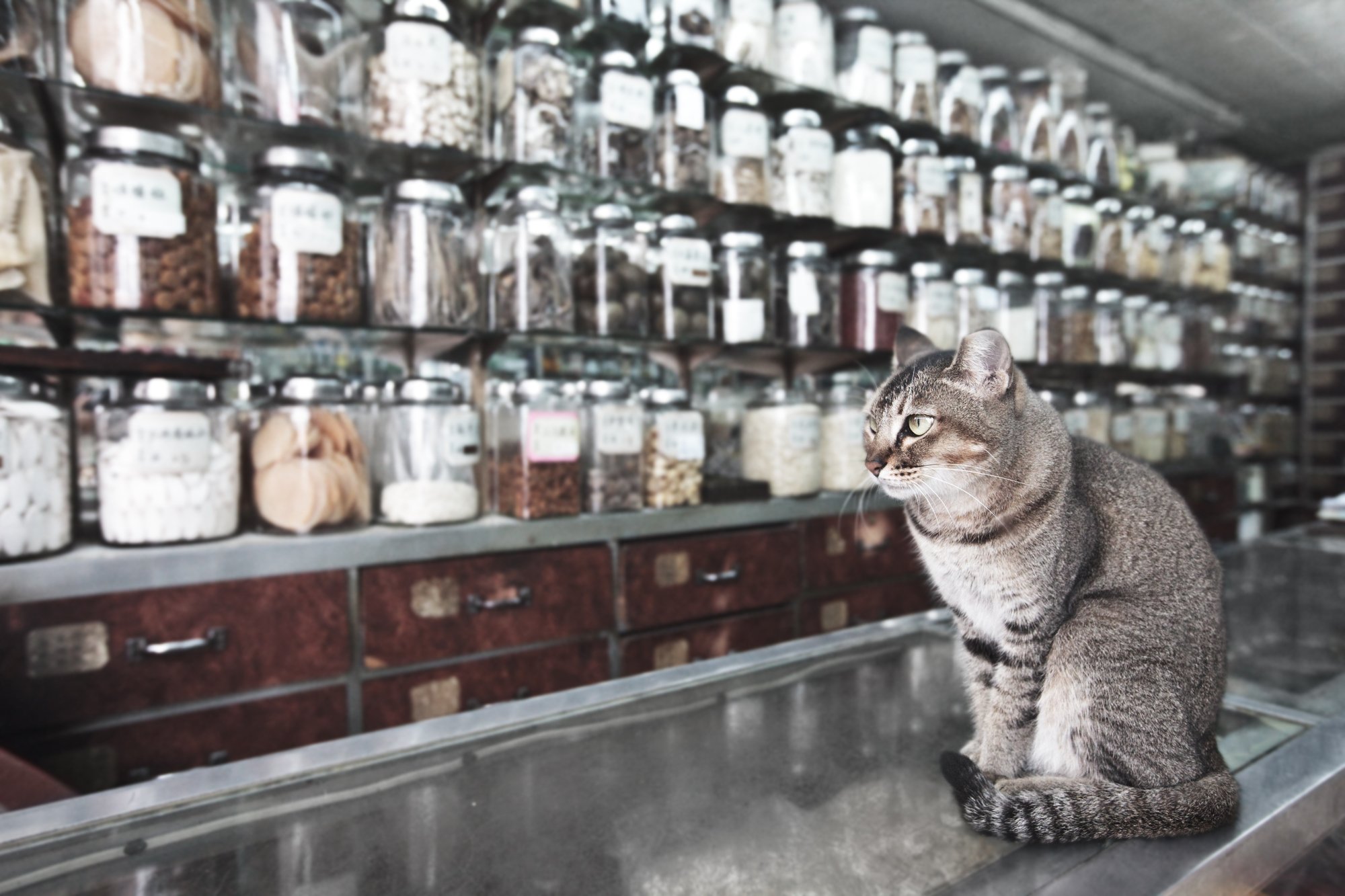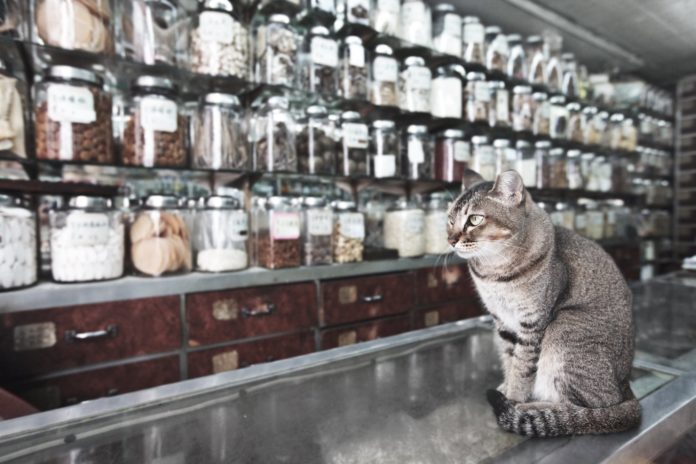
A study in the Journal of Feline Medicine and Surgery looked at using Chinese herbs to treat cats with urinary-tract problems. As we wrote in our September 2017 issue (go to catwatchnewsletter.com archives to read the article), lower urinary-tract problems are common in cats. The cause might be infection, crystal formations, or may be without known cause—the infamous “idiopathic cystitis.”
Cats with urinary problems can show a wide range of signs, including frequent urination, pain on urination, and accidents outside the litter box. Owners may notice the cat straining to urinate or passing blood in their urine. All are causes for concern.
The reasons behind bladder problems in cats are as wide ranging as the symptoms seen. Diet is often considered a factor, along with hydration. Stress seems to be involved in many cats, and there may be genetic predispositions.
Treatment is aimed at dealing with as many causes as possible, so behavioral management, diet changes, encouraging drinking, and medications may be used. Goals include lowering the concentration of urine and increasing urine volume so that cats flush their bladders more often and more fully. Many owners want a “natural” therapy for health problems.
This study looked at three medicinal Chinese herbs: San Ren Tang, Wei Ling Tang, and Alisma. It was hoped that these herbs might increase urine volume and correspondingly dilute urine as well as decrease urine pH so there would be fewer crystals. Cats received each herb for two weeks, with a one week washout period in between.
Only six cats were in the study—all healthy spayed females. Unfortunately, none of the herbal supplements showed a benefit for urinary problems. Further studies, perhaps using higher doses and/or cats with naturally occurring disease, may be warranted, but these supplements are not recommended at this time.




